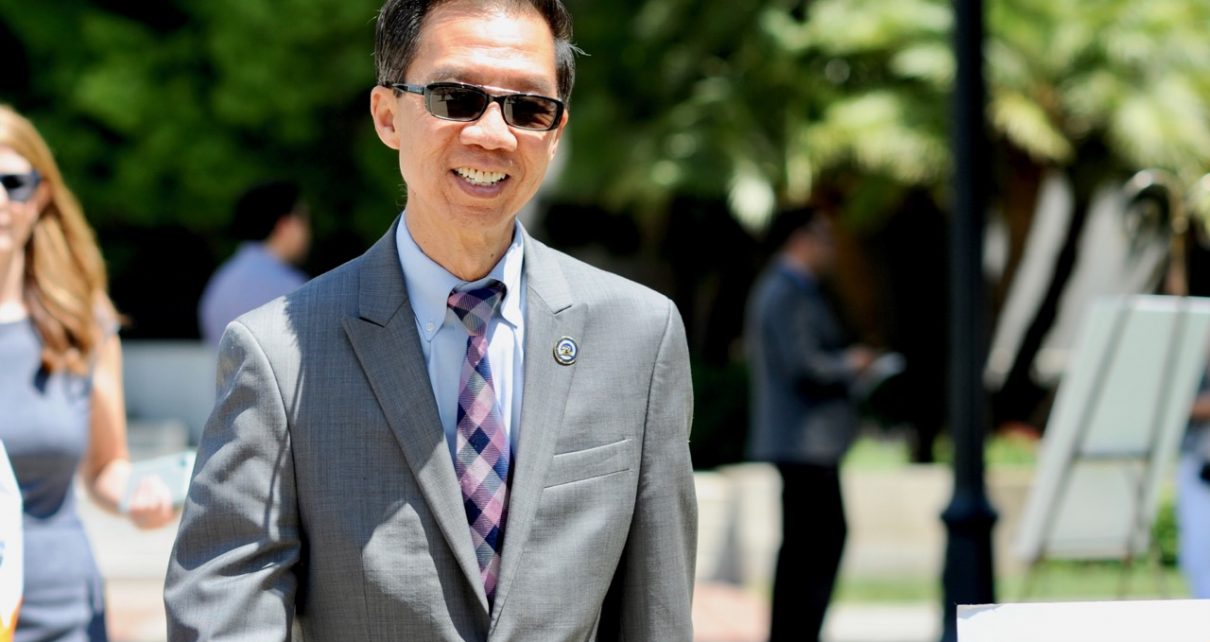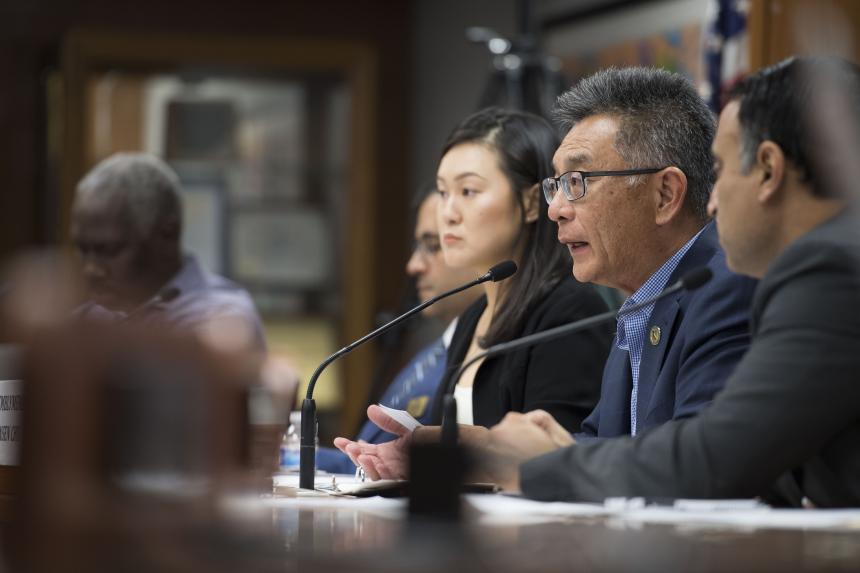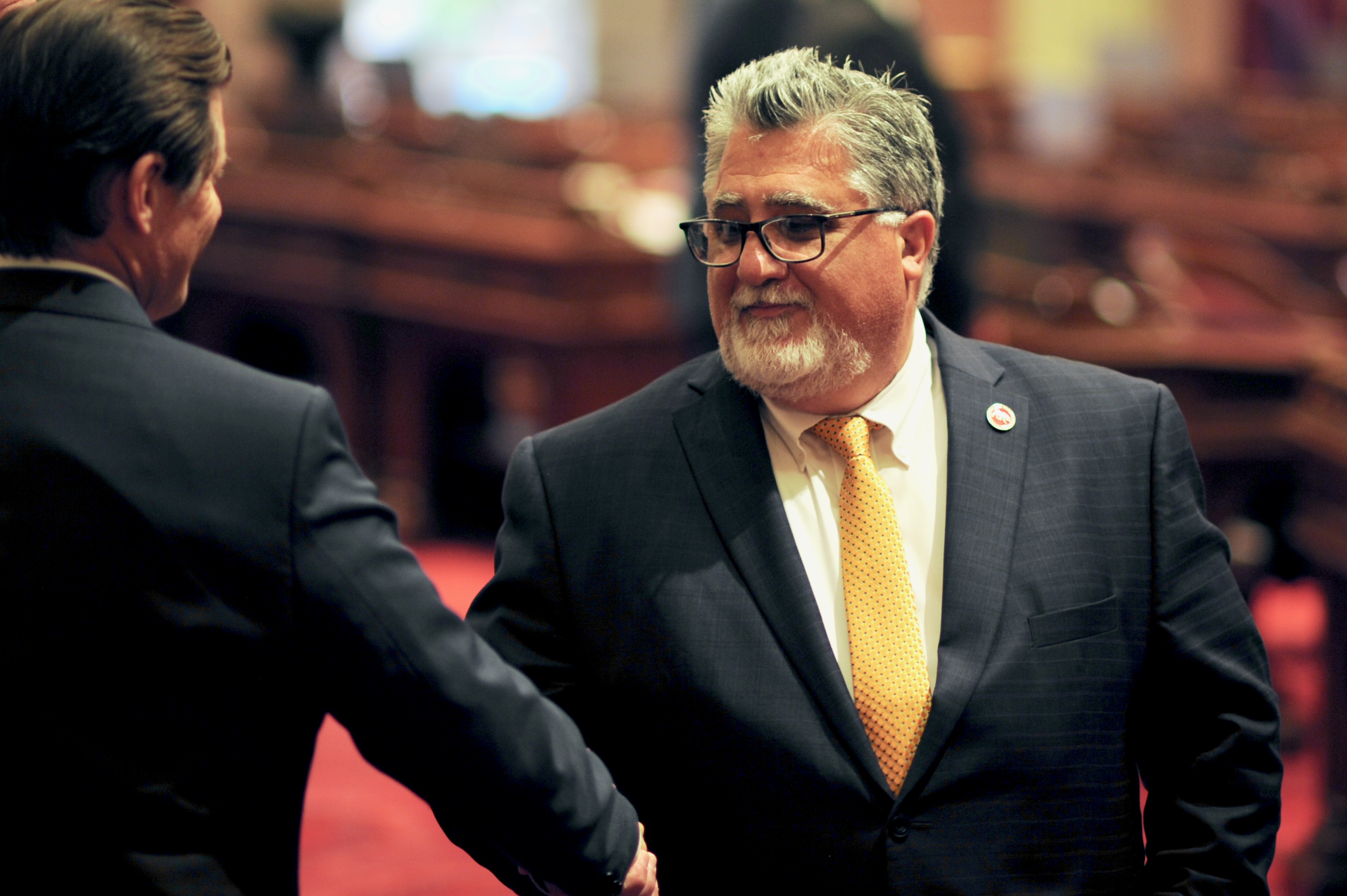
Assemblyman Ed Chau. (Photo: Kevin Sanders for California Globe)
Anti-Robocall Bill Faces Assembly Vote After Extended Recess
AB 3007 would give additional robocall protections to Californians
By Evan Symon, July 10, 2020 7:40 pm
Later this month, a bill that is designed to limit robocalls and increase consumer protections against robocalls will face numerous in the legislature following amendments made to tie the bill in with the current coronavirus pandemic.
Limiting robocalls with some emergency exceptions
Assembly Bill 3007, authored by Assemblyman Ed Chau (D-Monterey Park), would redefine robocalls, or ‘automatic dialing-announcing devices’ to include both calls and text messages with little human involvement. Robocalls to business associates and others would be deauthorized and consent could be given at anytime to stop calls to the recipients number.
Calls over voting and elections, specifically calls asking if the recipient will be voting will also need to have a live person on the other end instead of a robot asking.
There will be exceptions to robocalls not meeting the proposed new laws, with schools calling about students over attendance, emergency calls from power plants, emergency service agencies over active emergencies and system tests, tax exempt organizations calling their members, and utilities and cable systems calling over installations.
The bill was written with the intent on limiting robocalls and having individuals having more say over whether they want to receive such calls. While the bill was moving forward in Assembly hearings, the coronavirus pandemic shutting down the state in March led to subsequent amendments. Specifically, AB 3007 was changed to stop or allow call recipients to stop robocalls over coronavirus scams such testing kits and fraudulent relief funds.
The crackdown on robocalls post-coronavirus
Assemblyman Chau was quickly backed by many consumer groups over the new protections. Some, such as Consumer Reports, even noted that the bill would protect consumers over robocalls during the pandemic.
“Fixing the robocalls problem has been a priority for Consumer Reports for years. And this bill is particularly important now, with the increase in telemarketing robocalls related to COVID-19, including scam robocalls peddling fake testing kits. The rise in unemployment means that many consumers will have difficulty making regular payments on their loans, and will need these protections from harassing debt collection robocalls.”
Others pointed out that the new protections had been wanted by the majority of Californians since the late 2000’s.
“We were flooded with calls by people with no where to turn to,” explained telecommunications legal advisor Samantha Pollard in a California Globe interview. “Many were on the National Do Not Call Registry, but the number blocking is only really centered around telemarketers. Robocalls by and large pass that.”
“We helped many states, and California always had the most complaints. And not just based on numbers, but proportionate numbers. That’s saying something.”
“AB 3007 will not fix anything, but it’s giving Californian’s a chance to at least greatly reduce the number of robocalls and would give them some power in combating them. It also will allow important robocalls to come in, but only those, and that is a very strict list in AB 3007. A lot of cable companies probably wanted to have their own robocalls go through on more than local installations people needed to know about, but the bill is pretty rigid around that.”
While some companies have been opposing the new changes, with some Assembly members notably being against the bill in a previous iteration earlier this year, there is currently little opposition to AB 3007 within the legislature.
AB 3007 is expected to be in an Assembly Appropriations Committee hearing after the extended recess ends later this month.
- Bill to Require Law Enforcement Disclosure if AI Was Used To Help Write Reports - August 7, 2025
- Gov. Newsom Files FOIA Request To ‘Expose True Cost’ Of L.A. Federal Troop Deployment for Anti-ICE Riots - August 6, 2025
- California Redistricting: How Newsom’s Plan Will Demolish Hard Fought GOP Gains - August 6, 2025





Just nuke India and 90% of the problem goes away! I swear to God, I get at least 8 calls a day from Indian call centers spoofing local numbers…and that’s a minimum; frequently, it’s more. I really have a burn in my belly for Indian scam callers!!!
Your life is what’s left…..privacy is long over…the only way to flourish is go on offense…..find all call centers and have polite discourse….
“Anti-Robocall Bill Faces Assembly Vote After Extended Recess………………..”
Politicians take more vacations days than they do work days.
And that’s a fact!